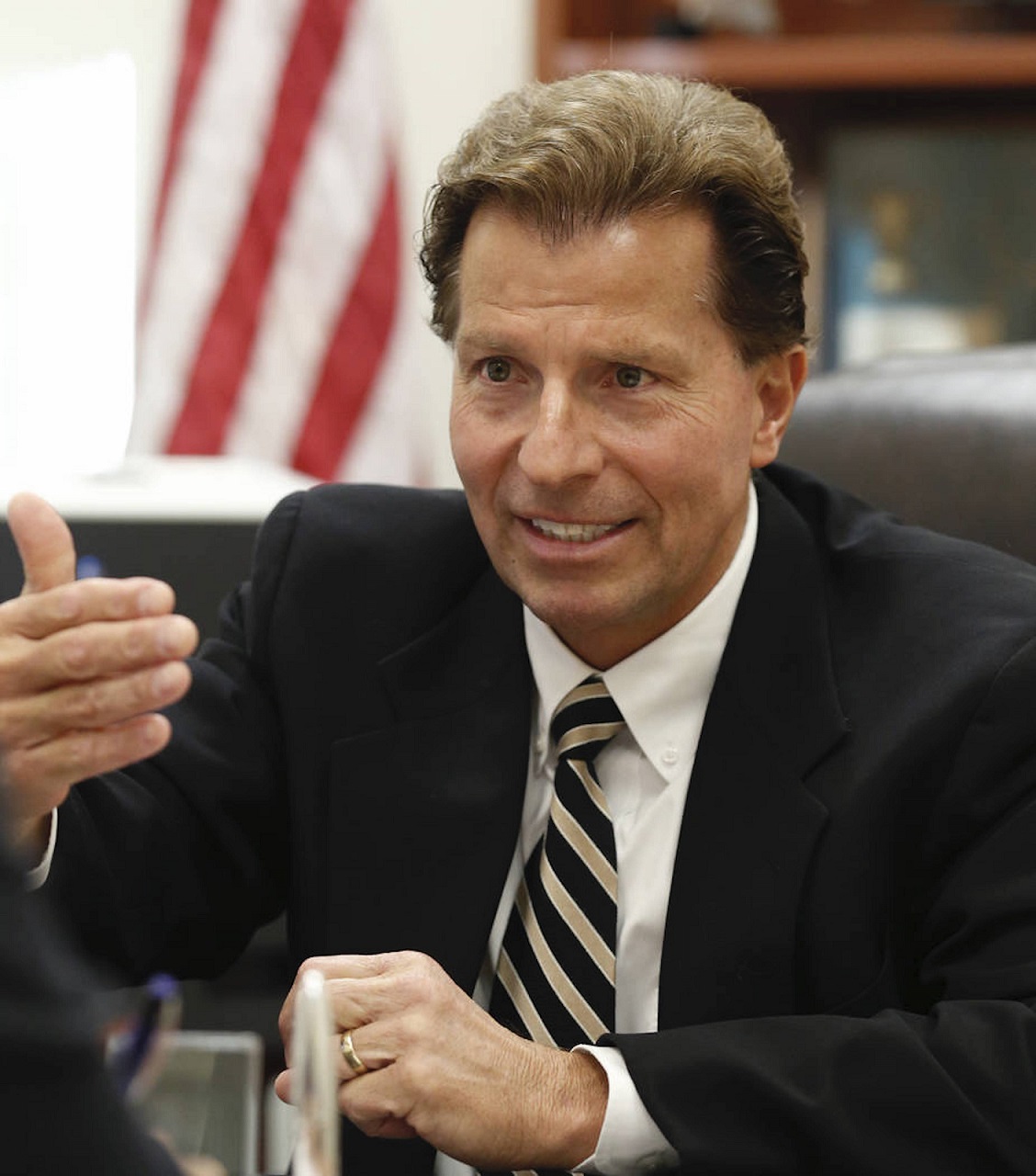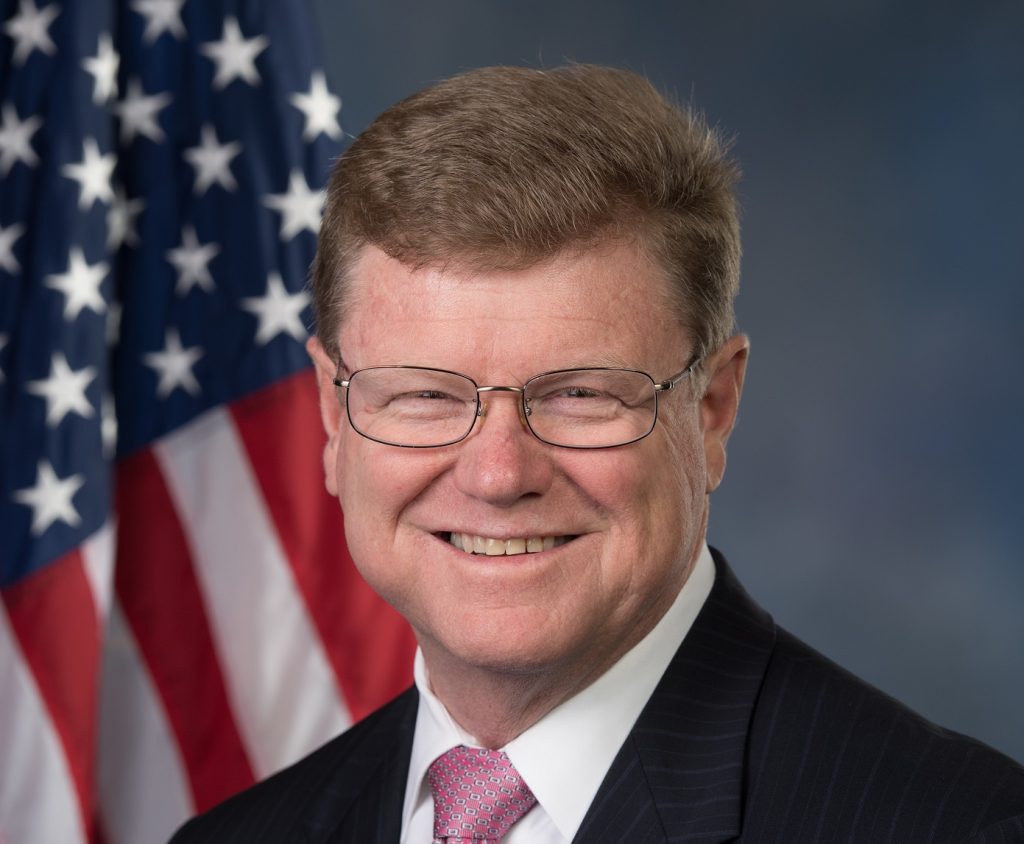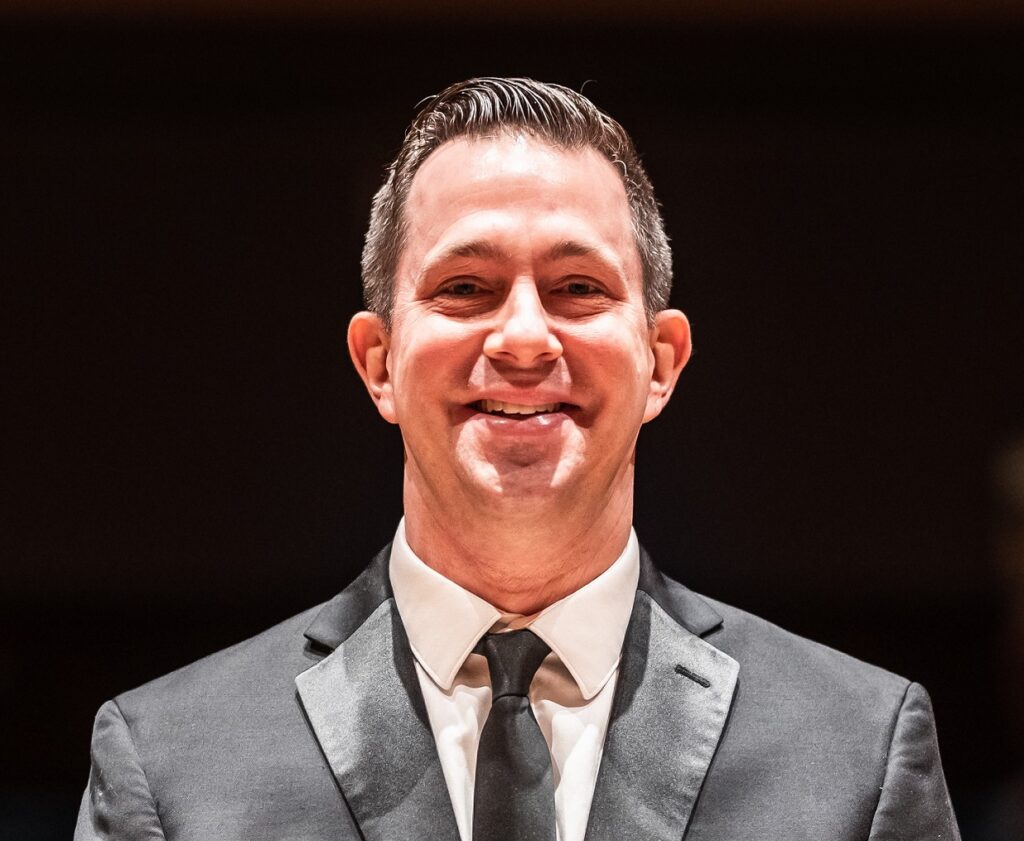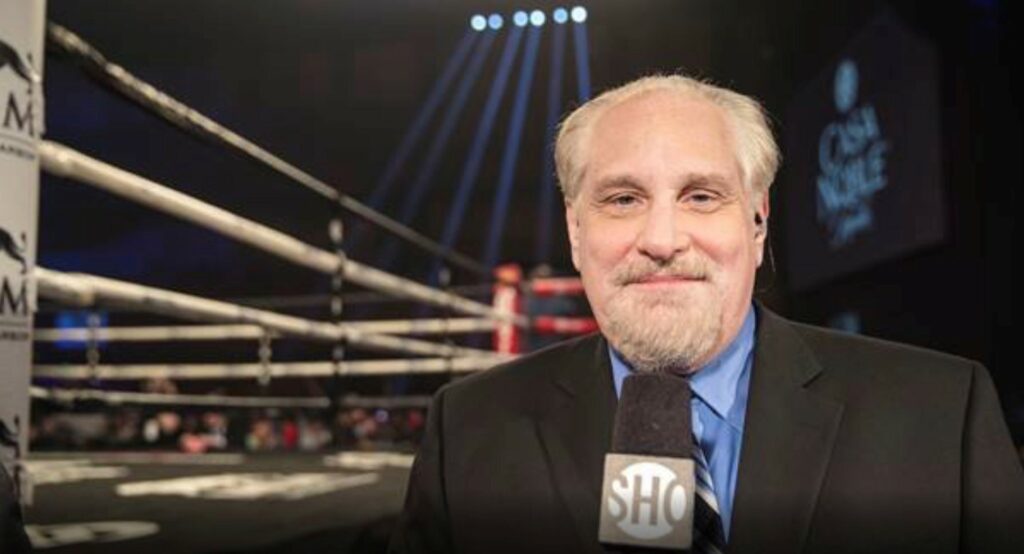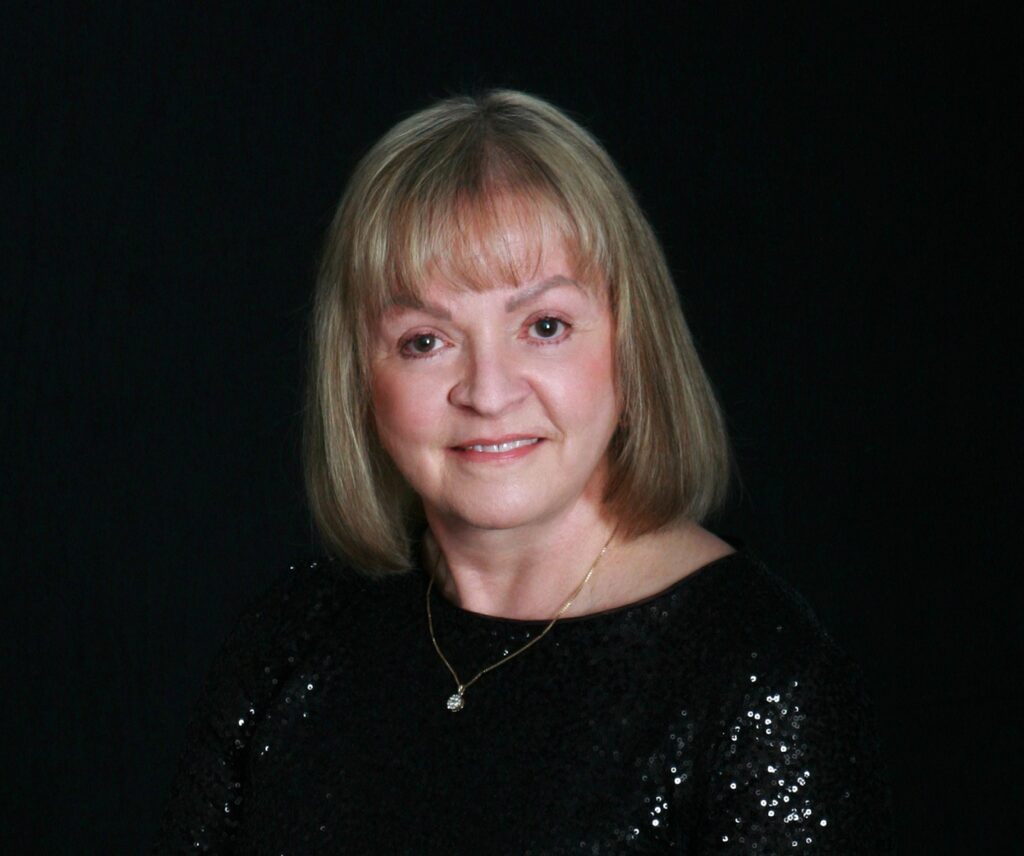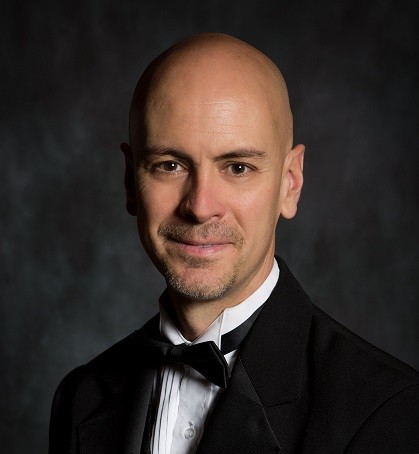Q&A with Principal Jim Kuzma
The principal of Rancho High School in Las Vegas credits the performing arts for many of the school’s achievements, including a 40% increase in the graduation rate.
Dr. Jim Kuzma, the principal of Rancho High School in Las Vegas, Nevada, fully credits performing arts for many of the school’s achievements.
During Kuzma’s tenure, the school’s graduation rate has grown by more than 40%, and the number of Advanced Placement tests administered has more than doubled.
Even though the school is located in the poorest ZIP Code in the state, it has a thriving arts program with almost 37% student enrollment. Chamber groups within Rancho’s band were invited to perform at The 2019 Midwest Clinic International Band and Orchestra Conference and the 2020 Music for All National Concert Band Festival. (See Case Study: A Music Program Succeeds in the Inner City about the Rancho High School band.)
Q. What music programs are offered at Rancho High School currently? How many students are enrolled in your various performing arts programs?
A. Our performing arts department includes band, orchestra, choir, mariachi, ballet folklorico, dance, theater and theater technology. Our total school enrollment is 3,243, and we have an enrollment of 1,198 students in performing arts.
Q. How were you able to increase funding for staffing, facilities and materials over the years to offer such a comprehensive program?
A. Principals in the Clark County School District have been fortunate to enjoy relative autonomy in regards to their school budgets. That flexibility allowed us to make decisions concerning Rancho’s staffing, scheduling and budget that prioritized providing a variety of opportunities and experiences for our students. We offset other school expenses through grants and other funding, so that the remaining budget could be used to support fine arts and other programs.
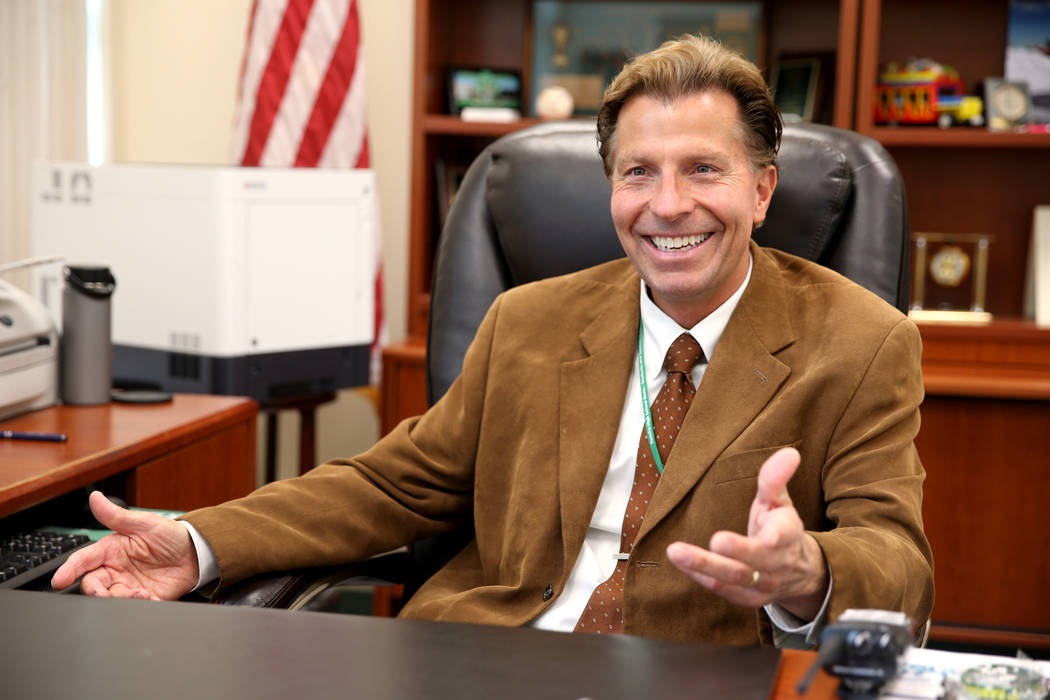 Q. What have you discovered about the value of music education since becoming the principal of Nevada’s largest high school?
Q. What have you discovered about the value of music education since becoming the principal of Nevada’s largest high school?
A. I have been in education since 1984 and have worked at six schools in three states. A common denominator that I have discovered is that students in music programs typically perform better in school.
When I arrived at Rancho in 2009, we had a band program with 47 students. We had a part-time orchestra teacher who spent two periods per day at our school. The choir was on the brink of extinction with only 15 students. Our mariachi program was the only one that was growing. In 2010, Rancho was designated as a “persistently low achieving” school by the state of Nevada.
Rancho was chosen to be the first high school to undergo turnaround in the state. I have witnessed countless schools that attempt to improve academically by throwing large sums of money at remedial programs. In many of these cases, there is very little gain.
Our approach to turning around Rancho was different. We started by revisiting Maslow’s hierarchy of needs, placing emphasis on “sense of belonging.” The performing arts provide an excellent venue for students to be part of something truly special and to create that “sense of belonging.”
So far, that strategy has worked well. Our graduation rates have steadily climbed from 54% to more than 96%. The number of Advanced Placement tests administered has increased from 443 in 2011 to 1,131 in 2019. We are now designated as one of Nevada’s Shining Stars Schools.
Investing in performing arts has paid off with tremendous dividends. It is no coincidence that the academic improvements that Rancho has experienced over the last 11 years have paralleled the growth and successes of our performing arts programs.
Schools embarking on the turnaround process should take a hard look at enhancing their performing arts as well as other programs that offer students opportunities and experiences prior to investing additional resources in academic remediation.
Q. How has Rancho’s music education program inspired you personally?
A. As a young person, I studied piano for seven years. I understand the time, commitment and discipline required to master an instrument. As a principal for the last 19 years, I learned early on that without great teachers, it is impossible for school improvement to take place. My standard operating procedure at Rancho has been to hire the best teachers and find ways to say “yes” to whatever they ask for.
Fortunately, I struck gold when it came to performing arts teachers. Roberto Lopez and JuanJose Cortez (Mariachi), Karen Rzendzian (Orchestra and Choir), Clint Williams and Max Feld (Band), Jacqelyn Guzman (Ballet Folklorico), Tommie Baravong (Theater) and Natalie Dey (Dance) make me look smart every time their groups perform. The relationship between the rebirth of our music education programs and the improvement as a school are directly linked. I attend almost every performance or concert, and I frequently am brought to tears when I recall what it took to get here.
Q. Given the current socioeconomic status of Rancho High School, how are students able to participate and succeed in your programs? What would you recommend to principals at similar schools?
A. Our school is located in the poorest ZIP Code in the state. All our students get free breakfast, lunch and supper. Asking the families of our students to contribute hundreds of dollars toward performing arts expenses is not an option.
There is no reason why our students should not be able to participate in performing arts at the same level as students in more affluent areas. Our instructors are judicious when organizing trips. They don’t travel just to travel, but instead they give special consideration to the overall impact of a performance or festival. We ask that the groups participate in fundraising, and we look for opportunities for student groups to raise money.
We also welcome community support and are so grateful for the many individuals and organizations that have stepped up to support our programs over the years. One example is the Wynn Resorts, which made a sizable donation to our mariachi program a few years ago, so that our students could perform at the Lincoln Memorial in Washington, D.C. When an opportunity like the prestigious Midwest Clinic in Chicago presents itself, we find a way to make it happen.
For schools that are in a similar position, I would suggest that they examine their priorities and have all decisions reflect those priorities. We know that our priority is providing opportunities and experiences for our students, often by way of the performing arts, so it is not uncommon that we forego certain niceties in order to make this happen.
Q. If you could expand your music program even further, what would you include that is not currently available to students at Rancho?
A. Part of what I would like to see in the future is more [interaction] with our feeder middle schools. I learned at the Midwest Clinic this past December that it is a common practice for high school music instructors to work directly with 6th grade students in beginning music classes. I think this would increase participation as well as improve the overall quality of the program.
Q. From your perspective, why is music important to humanity?
A. Music and dance have always been part of the human experience. It would be difficult to imagine a world without music. Music is present during times of celebration and in times of mourning. It connects the past, present and future.
Q. Which person from history, dead or alive, would you want to have lunch with, and what would you discuss?
A. I want to have lunch with the person who will eventually replace me as principal. I would discuss the importance of staying the course and continuing to focus on providing opportunities and experiences for all the students at Rancho High School. Hire the best teachers available and support them.
Q. Why is it important to protect access to music education?
A. Music education introduces students to accountability. When a student does not practice in a performing arts setting, it is clear to everyone. If a student misses a math question on a test, only the teacher and student know.
With the push for more STEM and increased scores on high-stakes tests, it may seem logical to place less emphasis on performing arts. But that would be a mistake. Music education is life-altering and can change the trajectory of a young person’s life. Much research has been done to link mathematical reasoning to music. In the end, the students inclined to take music classes will also engage in STEM classes and score higher on high-stakes tests.
On a personal note, I have seen firsthand the benefits of music education and its impact on our campus. Our music programs provide students with a “sense of belonging” as well as numerous opportunities and experiences that they would not have otherwise. Eliminating access to music programs would deny students access to elements of the culture and history of the human race.
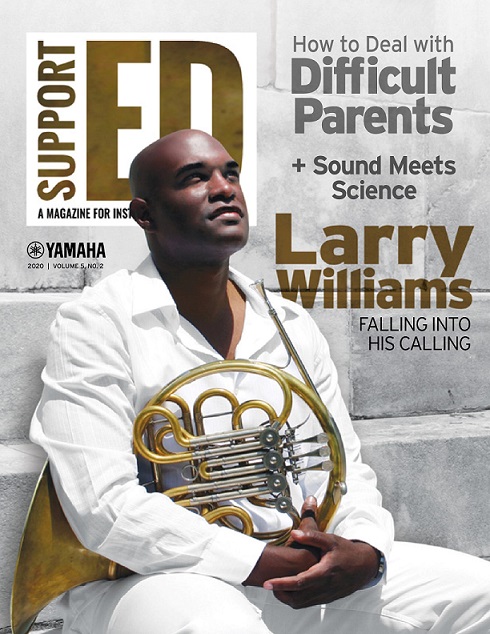 This article originally appeared in the 2020N2 issue of Yamaha SupportED. To see more back issues, find out about Yamaha resources for music educators, or sign up to be notified when the next issue is available, click here.
This article originally appeared in the 2020N2 issue of Yamaha SupportED. To see more back issues, find out about Yamaha resources for music educators, or sign up to be notified when the next issue is available, click here.










